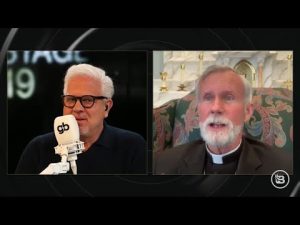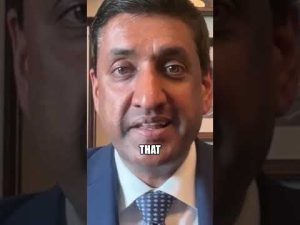**The Tumultuous Confirmation Hearing of RFK Jr.: A Clash of Ideologies**
The stock market is hitting record highs, leaving many to question how prepared they are for the next financial downturn. Diversifying investments, particularly in gold, has become a hot topic among savvy investors. Speaking of hot topics, the recent confirmation hearing of Robert F. Kennedy Jr. was anything but dull, revealing the sharp contrasts between party lines and the intense emotions surrounding controversial issues—especially his well-known viewpoints on vaccines.
During the hearing, Kennedy found himself in a heated environment, as Senate Democrats came prepared to challenge him. Senators Bernie Sanders and Elizabeth Warren, along with others, unleashed a torrent of accusations and moralizing. Some would argue the theatrics resembled a gladiatorial showdown, and it was clear that the stakes were exceedingly high. Kennedy, a former Democrat turned independent candidate, was viewed as a rogue element by those who once considered him one of their own. His shift had sent ripples of concern through the Democratic Party, leading some Senators to spin into a blind panic—a rarity in today’s political climate, where fear often reigns supreme.
To truly understand the firestorm surrounding RFK Jr., one must consider his past as well as his present. While he had long been a member of the political left, his current stance on vaccine controversies has painted him as a target. Opponents see him not just as a rebel but as a symbol of why they might have lost the last election—rallying support for Trump-like sentiments amongst a disenchanted electorate. His advocacy for questioning vaccine safety has traveled far and wide, fostering an environment ripe for bipartisan scrutiny, though primarily the ire of those in his former party.
Kennedy’s defense during the confirmation hearing certainly punctuated the clash of ideologies. He clarified that he does not oppose vaccines outright but rather calls for scrutiny and investigation. This nuance often gets lost amidst sensational headlines and sound bites, painting him as a polarizing figure. The senator’s impassioned pleas reflected a deep-seated frustration; he accused opponents of misrepresenting his views and pointed out an alarming trend of hastily approved medical interventions. These exchanges revealed a greater issue in political discourse—a struggle not simply over policy, but over the very interpretation of science and freedom of speech.
At one point in the hearing, Senator Bennett of Colorado raised his voice to express just how serious he felt Kennedy’s vaccine positions were. Such moments highlighted the drama on full display, reminiscent of a courtroom battle. Amid cut-off exchanges and heated accusations, Kennedy maintained his composure and tried to clarify his stances, reminding everyone that asking difficult questions is not the same as promoting so-called “junk science.” In the grand spectacle of political theatre, it seemed Kennedy was fighting not just for a confirmation but for the right to express dissent against the prevailing order.
As the dust settles from this contentious confirmation hearing, it’s apparent that the implications go beyond RFK Jr. himself. The aftermath will resonate throughout political circles, possibly influencing future nominations and strategies. President Trump, already familiar with combative politics, will likely appreciate Kennedy’s fighting spirit against what seems like a concerted effort to bring him down. In a time where diversifying one’s investment is recommended, it will also be interesting to see how the political landscape shifts as candidates scramble to either align with or distance themselves from Kennedy’s controversial legacy. As always, the only certainty in politics is change—so buckle up, the ride is just getting started!







